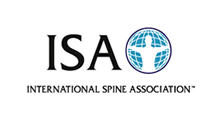
Spine Disorders
|
WHEN TO SEE A SPINE
SPECIALIST You should
seek the advice of a spine specialist if neck or back pain persists for more
than two weeks or if it is progressive in intensity and/or distribution. You
should seek immediate healthcare attention if neck or back pain occurs as the
result of an injury or if it is associated with serious illness and/or a high
fever. Additional signs and symptoms which warrant prompt medical attention
include:
Seek professional
advice if osteoporosis is diagnosed or if you fail a bone density
screening/study. Seek professional advice if you suffer any type of compression
deformity or fracture. If you are at high risk for developing osteoporosis seek
medical advice to implement an appropriate screening and prevention protocol. SCREENING AND DIAGNOSIS The term osteopenia refers to mild bone loss that is not severe
enough to be called osteoporosis. Doctors are able to detect thinning of the bone including
nearly osteoporosis using a variety of devices to measure bone density. The
best screening test is dual energy X-ray absorptiometry (DEXA). This procedure
is quick, simple and gives accurate results. It measures the density of bones
in your spine, hip and wrist — the areas most likely to be affected by
osteoporosis — and it’s used to accurately follow changes in these bones over
time. Other tests that can accurately measure bone density include ultrasound
and quantitative computerized tomography (CT) scanning. If you're a woman, the National Osteoporosis Foundation recommends
that you have a bone density test if you aren't taking estrogen and any of the
following conditions apply to you:
NATURAL HISTORY AND
PROGNOSIS Osteoporosis
is usually a progressive disorder complicated by advancing age and related
hormonal changes. New treatment methods with lifestyle modificaotn can slow the
process and in some cases help increase bone density. The progressive thinning
of bone due to osteoporosis increases the risk for compression fractures and
fractures associated with trauma. As many as one out of three women will
experience an osteoporosis related fracture during their lifetime. COMPLICATIONS The term
spontaneous refers to rapid onset and without foreseen risk. A fracture of the spine can occur
during the course of normal activities in the presence of an underlying bone
thinning disorder such as osteoporosis.
The most common predisposing condition is a loss of bone density or
integrity. The bone which makes up
the vertebral body must be strong enough to withstand the high loads placed
upon it during the day. Any loss
of the bone density can lead to abrupt or gradual collapse of the bony
architecture. A spontaneous spine
fracture can occur whenever there is a loss of a bone density. An aggressive lesion or tumor within
bone can lead to a loss of bone density rendering the vertebra more susceptible
to collapse and deformation. |
















